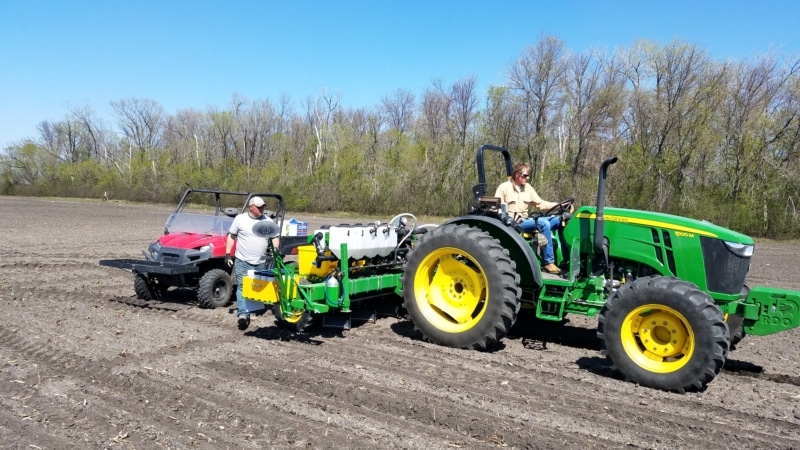Investing in Sugar’s Future
America’s sugar farming families and workers are building a brighter future through investments both in sugar crops and the talent needed to produce this essential ingredient.
The grower-owned Minn-Dak Farmers Cooperative in Wahpeton, North Dakota, is committed to producing sugar sustainably.
Mike Metzger, Vice President of Agriculture and Research, works alongside his team to give Minn-Dak’s farmers the tools they need to grow the best possible crop. Healthier plants more efficiently harness the power of the sun to create sugar.
One recent development that has helped farmers raise healthier beets are seeds coated with targeted disease and pest control treatments.
“We always say, the hope of the harvest starts with the seed,” Mike shared. “[With] seed treatments, we’re able to deliver a very specific amount of product that’s very active on our pest, that’s in the zone where we want it, while not hurting the seed. It’s been a very great thing.”
This has a major downstream impact. It reduces the need for insecticide applications and results in a healthier sugarbeet, lowering the respiration of beets in storage, increasing sugar, improving efficiencies in processing, and supporting the economic viability of growers.
“Sustainability to me, as an agronomist for sugarbeets, is really the documentation of practices that have been in existence for years. You don’t get to be a 4th generation sugarbeet farm and be successful unless you’re being incredible stewards of the land,” Mike said.
Another way Minn-Dak is showing its commitment to a sustainable future is by investing in its workforce.
Emily Skaare began her career at Minn-Dak as a college intern. She is now a process engineer and part of the team that keeps the co-op running smoothly.
Emily’s work at Minn-Dak includes finding new ways to increase efficiency and become more sustainable. For example, the co-op is working to create more sugar while using fewer resources by recovering waste heat. The co-op captures the heat from hot water that needs to be cooled and then uses it in another part of the process that requires warm water.
Sustainability is consistently top of mind for Emily. “How are we protecting the earth, land, and the resources for the generations ahead of us?” she said. “Are we using appropriately and are we saving appropriately?”
Emily also hopes that her role at Minn-Dak serves as inspiration to others interested in the sugar industry. “It’s good for people to see that this job can be for anybody,” she said.
Check out some more of the sweet ways our sugar producers are helping to create a more sustainable future by viewing our Sugar Sustainably series on YouTube.



